
There is no bigger current affairs show on British television than the BBC’s Question Time. For more than 40 years, millions have tuned in week after week to watch the country’s leading politicians and pundits argue and debate the news in front of a live studio audience. In January 2015, I was invited to join the Question Time panel. It was the week after the Charlie Hebdo terror attack, in which two French Muslim brothers had murdered 12 people at the offices of the satirical newspaper in Paris. In the weeks and months running up to the attack, offensive and racist cartoons of the Prophet Muhammad published by Charlie Hebdo had caused outrage and protests across Muslim-majority countries.
I knew the show’s producers were keen to have a Muslim voice on the panel—and, to be honest, I was keen to be that voice. In fact, I was beyond grateful to have access to such a huge media platform from which to try and push back against the usual Islamophobia that is unleashed in the wake of every ISIS- or al-Qaeda–linked terror attack. But I knew it wouldn’t be easy, and I knew I had to do it with a light touch.
That night, the opening question from the audience was about the violence in Paris and the Charlie Hebdo cartoons: “Free speech is good, but where do you draw the line before it becomes harmful and offensive?” And, for the opening response, host David Dimbleby handed the stage over to me.
I began by making clear that I was appalled—by the massacre in Paris, by homicidal maniacs abusing my religion to justify their crimes.
Diese Geschichte stammt aus der May 2023-Ausgabe von Reader's Digest India.
Starten Sie Ihre 7-tägige kostenlose Testversion von Magzter GOLD, um auf Tausende kuratierte Premium-Storys sowie über 8.000 Zeitschriften und Zeitungen zuzugreifen.
Bereits Abonnent ? Anmelden
Diese Geschichte stammt aus der May 2023-Ausgabe von Reader's Digest India.
Starten Sie Ihre 7-tägige kostenlose Testversion von Magzter GOLD, um auf Tausende kuratierte Premium-Storys sowie über 8.000 Zeitschriften und Zeitungen zuzugreifen.
Bereits Abonnent? Anmelden

ME & MY SHELF
Siddharth Kapila is a lawyer turned writer whose writing has focussed on issues surrounding Hinduism. His debut book, Tripping Down the Ganga: A Son's Exploration of Faith (Speaking Tiger) traces his seven-year-long journey along India's holiest river and his explorations into the nature of faith among believers and skeptics alike.
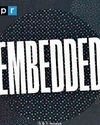
EMBEDDED FROM NPR
For all its flaws and shortcomings, some of which have come under the spotlight in recent years, NPR makes some of the best hardcore journalistic podcasts ever.
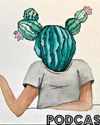
ANURAG MINUS VERMA PODCAST
Interview podcasts live and die not just on the strengths of the interviewer but also the range of participating guests.

WE'RE NOT KIDDING WITH MEHDI & FRIENDS
Since his exit from MSNBC, star anchor and journalist Mehdi Hasan has gone on to found Zeteo, an all-new media startup focussing on both news and analysis.
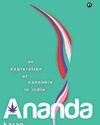
Ananda: An Exploration of Cannabis in India by Karan Madhok (Aleph)
Karan Madhok's Ananda is a lively, three-dimensional exploration of India's past and present relationship with cannabis.
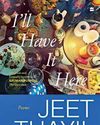
I'll Have it Here: Poems by Jeet Thayil, (Fourth Estate)
For over three decades now, Jeet Thayil has been one of India's pre-eminent Englishlanguage poets.
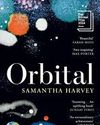
Orbital by Samantha Harvey (Penguin Random House India)
Samantha Harvey became the latest winner of the Booker Prize last month for Orbital, a short, sharp shock of a novel about a group of astronauts aboard the International Space Station for a long-term mission.

She Defied All the Odds
When doctors told the McCoombes that spina bifida would severely limit their daughter's life, they refused to listen. So did the little girl

DO YOU DARE?
Two Danish businesswomen want us to start eating insects. It's good for the environment, but can consumers get over the yuck factor?

Searching for Santa Claus
Santa lives at the North Pole, right? Don't say that to the people of Rovaniemi in northern Finland